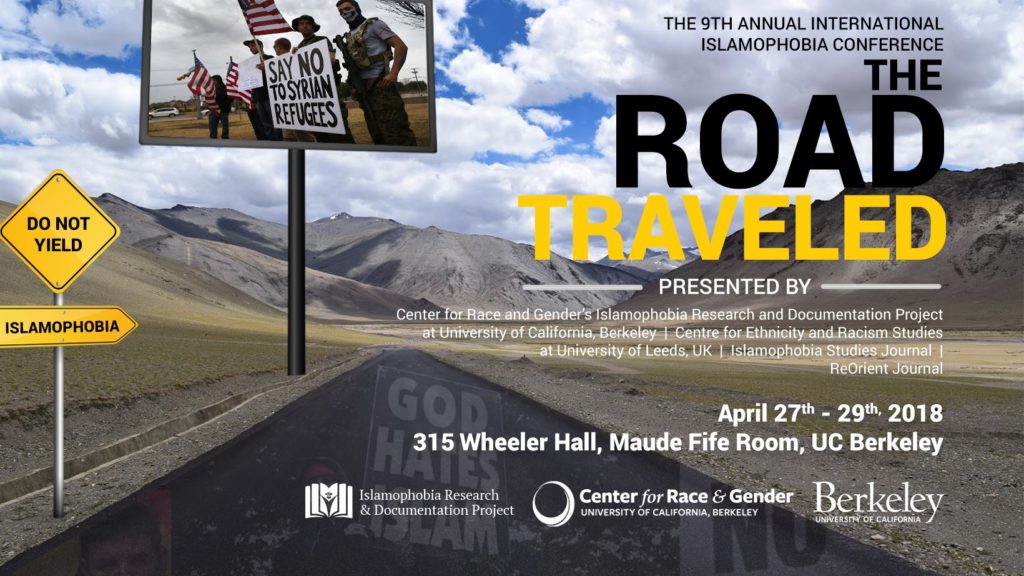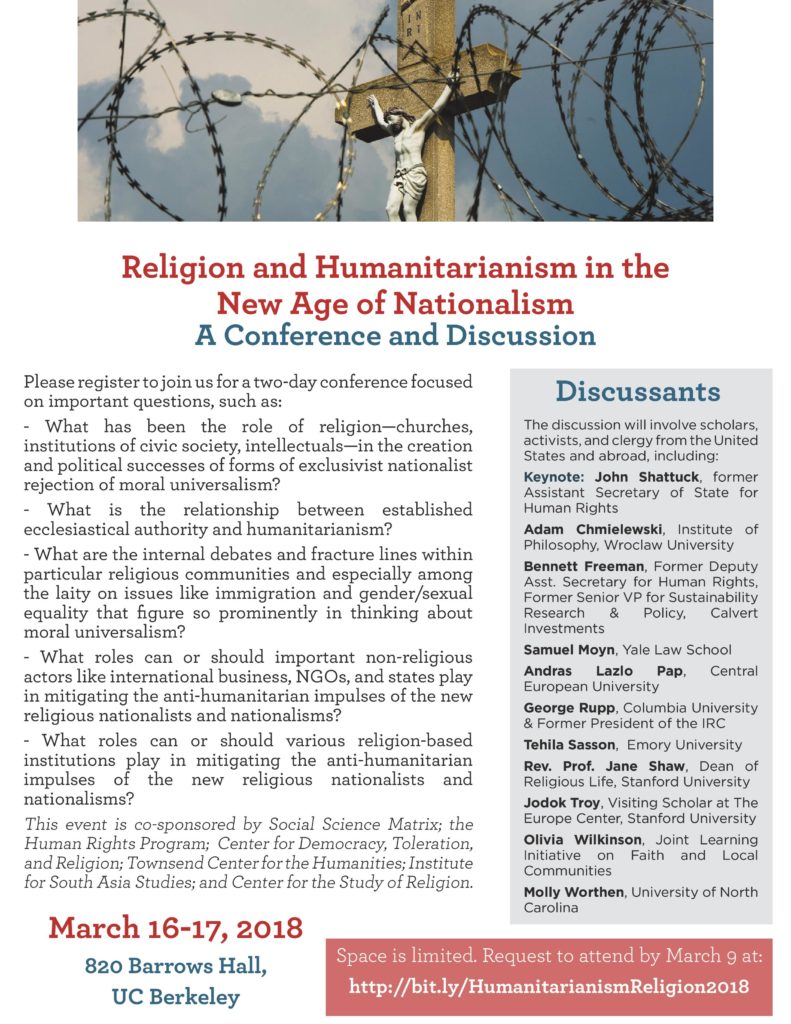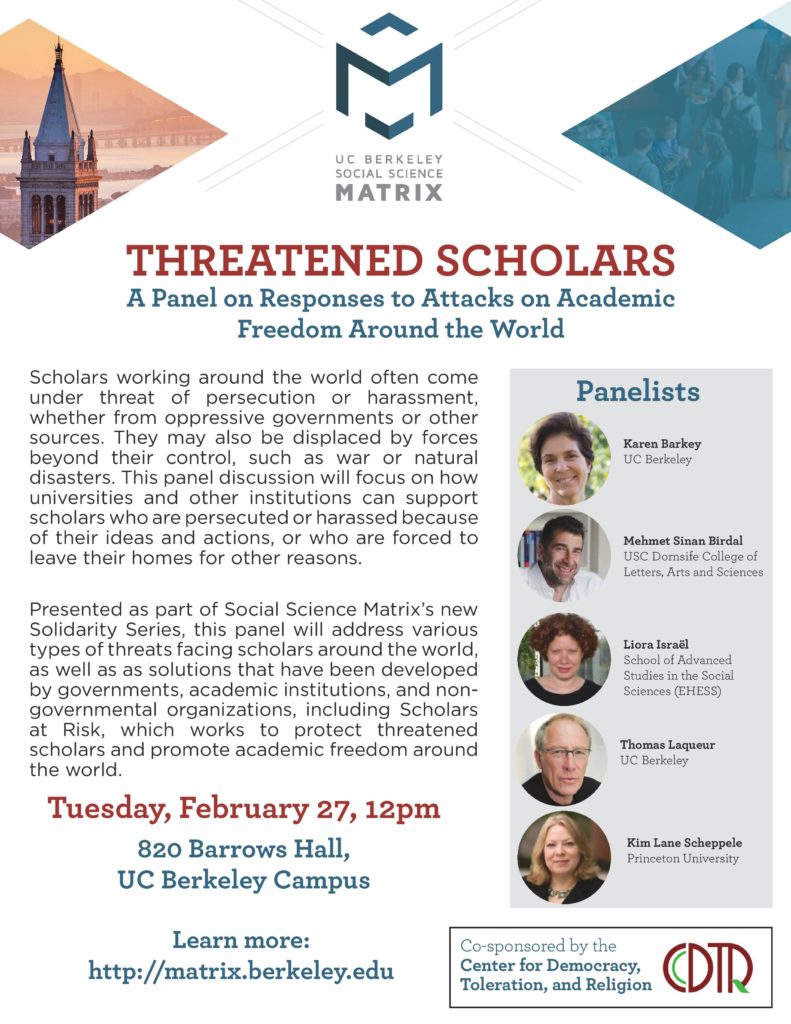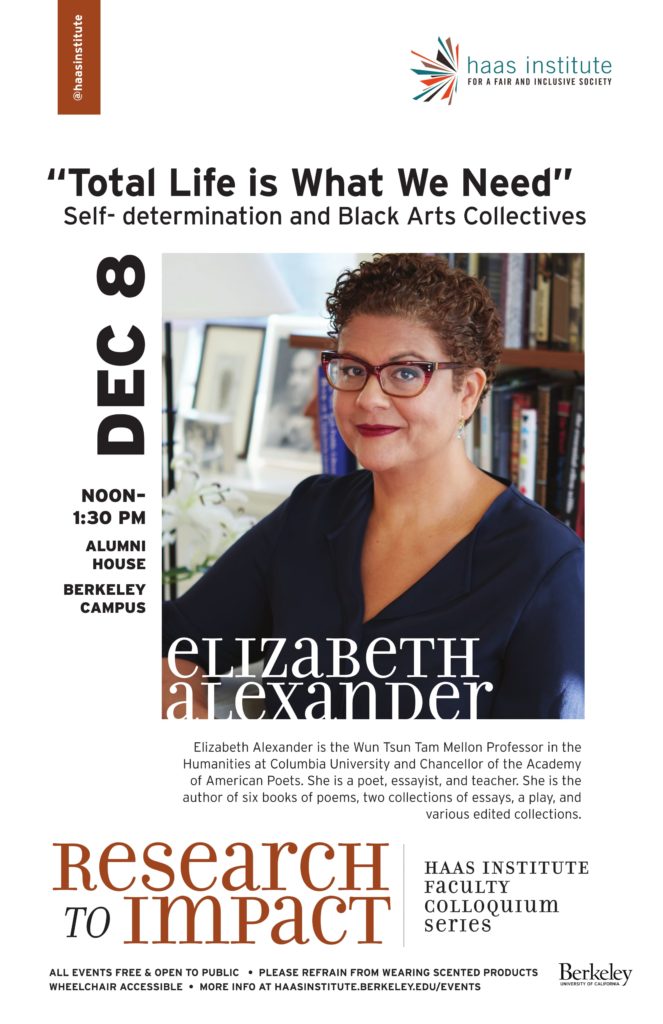Click here to read a thoughtful and rich review of Shared Sacred Sites Exhibition by Gordon Haber at The Forward.
International Exhibition Shared Sacred Sites is coming to New York City on March 27-June 30th, 2018, hosted by The New York Public Library, The Graduate Center, CUNY, and The Morgan Library and Museum.

Click the link below to view the official informational brochure of Shared Sacred Sites exhibition. Scroll down to read the program of the Exhibition and the Public Events.
Official Brochure – Shared Sacred Sites, New York
Shared Sacred Sites- A Program
For centuries Christians, Jews and Muslims as members of the Abrahamic religions have visited and prayed at sanctuaries belonging to each other. This presence of “shared” sacred sites is a well–established phenomenon in the Mediterranean, revealing the permeability of the frontiers between religious communities. Despite theological differences, the three religions share a number of elements in terms of beliefs, rites, holy figures and places. These features have formed a fertile ground for the sharing of sacred sites across the Mediterranean and Middle East, although they have also historically led to antagonism between different religions and partition of some of these places. Yet today, many shrines and sanctuaries have survived across the Mediterranean world and welcome the faithful of different religions with hospitality and respect.
Shared Sacred Sites puts forward a powerful story of tolerance and cross-faith, cross-cultural co-existence. The project combines cultural events, performances, contemporary art, ethnographic material and digital interactive media to tell the story of a long, Mediterranean and Middle East tradition against current discourses of conflict, exclusion and fundamentalism: that of sharing of saints, sacred places, religious practices, and experiences between Muslims, Christians and Jews. We focus on the Mediterranean and Middle East not only because it is the historical birthplace of the three Abrahamic religions, but also because it is the space where the three religions came to negotiate with each other, in tension and in cooperation.
Exhibition: March 27-June 30th, 2018
Shared Sacred Sites is organized as a contemporary “pilgrimage” in Manhattan through three venues: The New York Public Library, the Morgan Library and Museum, and the James Gallery at the CUNY Graduate Center.
At the New York Public Library, the exhibition opens with the history of the Holy Land, a look at Jerusalem as both holy city and center of pilgrimage for three faiths. An examination of Abraham’s vision of hospitality sets the stage for extending forbearance to the stranger and the unfamiliar. This mythical episode—present both in the Bible and the Qur’an—was also key to the New Testament command, “Do not neglect to show hospitality to strangers, for by doing that some have entertained angels without knowing it.” The exhibition then shifts to Moses, who engendered a common veneration at Mount Sinai in Egypt, followed by the Saint Catherine monastery, which was a stop for many Muslim pilgrims traveling to Mecca since the premodern area. Many of them visited the top of the mountain where there is still a mosque and a church. Mary has also been pivotal to the narratives that bind Christianity and Islam, as if encouraging the bridge between these religions through her shared sanctity. To complete a panoptic vision of shared holy figures, other characters are depicted and presented such as Elijah/al-Khidr at Mount Carmel, the Seven Sleepers, John the Baptist, and Saint Georges.
The Morgan Library and Museum brings an altogether different aspect of the story of coexistence and collaboration between diverse cultures in a display of the celebrated Morgan Picture Bible produced in Paris around 1250, which offers the most exquisite visualizations of the events of the Old Testament. With the passing of time and distance, the manuscript acquired inscriptions in Latin, Persian, and Judeo-Persian. It is a beautiful display of the contact of civilizations and a deep respect for shared heritage.
The Graduate Center at the City University of New York gathers contemporary examples compiled by an international team with various explorations and experiences in sanctuaries, presenting a medley of artifacts, contemporary art, multimedia, and photographs. Visitors of the exhibition will discover contemporary situations in the places such as Bethlehem, Djerba, Ephesus, Haifa, Hebron, Istanbul, and more.
Events
ALL EVENTS WILL BE OPEN TO PUBLIC, WITH HOPES TO REACH VISITORS AS WELL AS RESIDENTS OF NYC TO PROMOTE DIALOGUE ON INTERFAITH COEXISTENCE.
These exhibitions will be accompanied by a series of events that will feature music, conversations and workshops, highlighting the essence of these shared cultural experiences. The exhibition will open at the Graduate Center at the City University of New York on the 27th of March, with welcoming addresses and a presentation by Yinon Muallem, Meeting of the Hearts, a unique blend of discussion, sound and composition bridging across different religions and cultures. This performance was inspired by the mutual influences between Sufi mystic poetry and medieval traditions of Spanish Jewry.
We will continue with an opening at the New York Public Library on the 28th of March, with a conversation between three Faith Leaders from each of the Abrahamic Religions. Featuring Cheik Khaled Bentounès, Rabbi Rolando Matalon and Minister and Theologian Cláudio Carvalhaes, we will discuss the issues of mutual tolerance, universal understandings of hospitality that emanate from the tradition of Abraham, as well as how each religious tradition has within itself the capacity to extend to the other and promote “living together in peace.” Each of these religious leaders has thought, reached out and acted to counter the divisions experienced in the world. They will discuss their participation and their view of the tradition of sharing sacred sites between the three Abrahamic faiths. We will also try to breach the question of the relationship between humanitarianism and the three established religions. Why has religion not been a full advocate of humanitarianism? What can enlightened faith leaders do to change this? This event will be moderated by Anisa Mehdi, acclaimed journalist and filmmaker and director of the Abraham’s Path Initiative. The discussion will be followed by a viewing of the NYPL part of the exhibit.
A day-long workshop at the Graduate Center at the City University of New York on the 29th of March will continue the conversations about pluralism and coexistence. Here, we will discuss the cases of coexistence, tolerance and intolerance in the Middle East through the lens of shared music and shared sites, as well as shift the focus to discuss the vagaries of pluralism in contemporary America. With a series of famed historians and social scientists of the United States, we will explore whether our long-coveted pluralism is now fuel for divisions.
See the workshop program below.
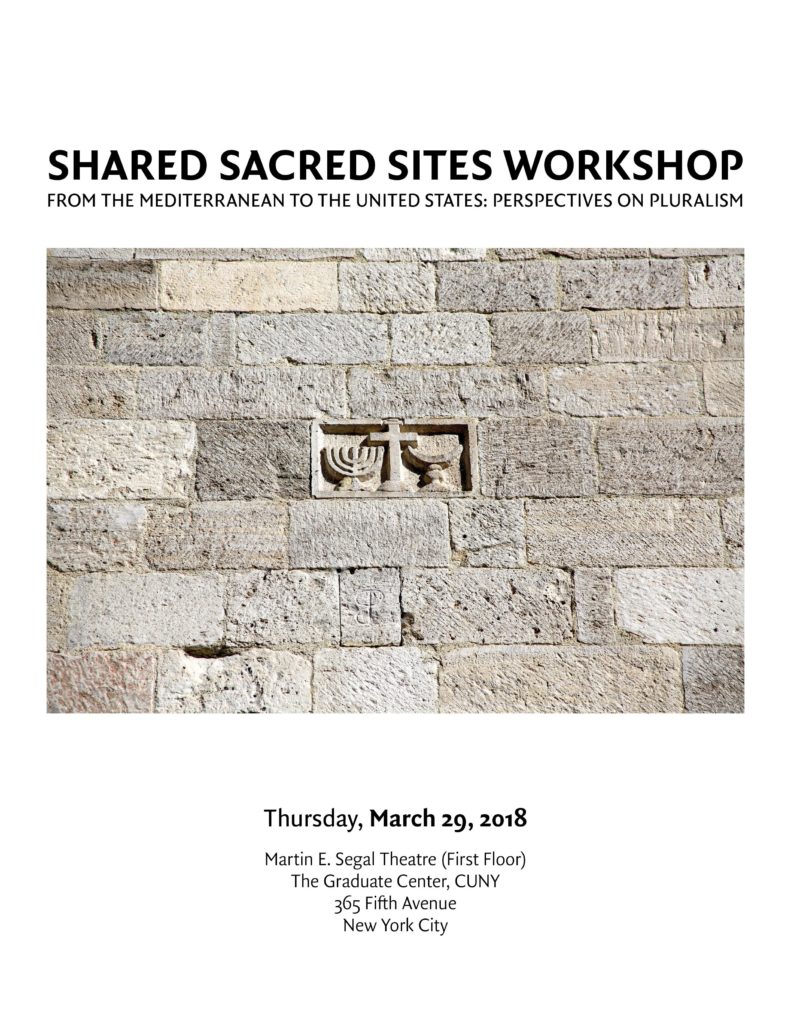
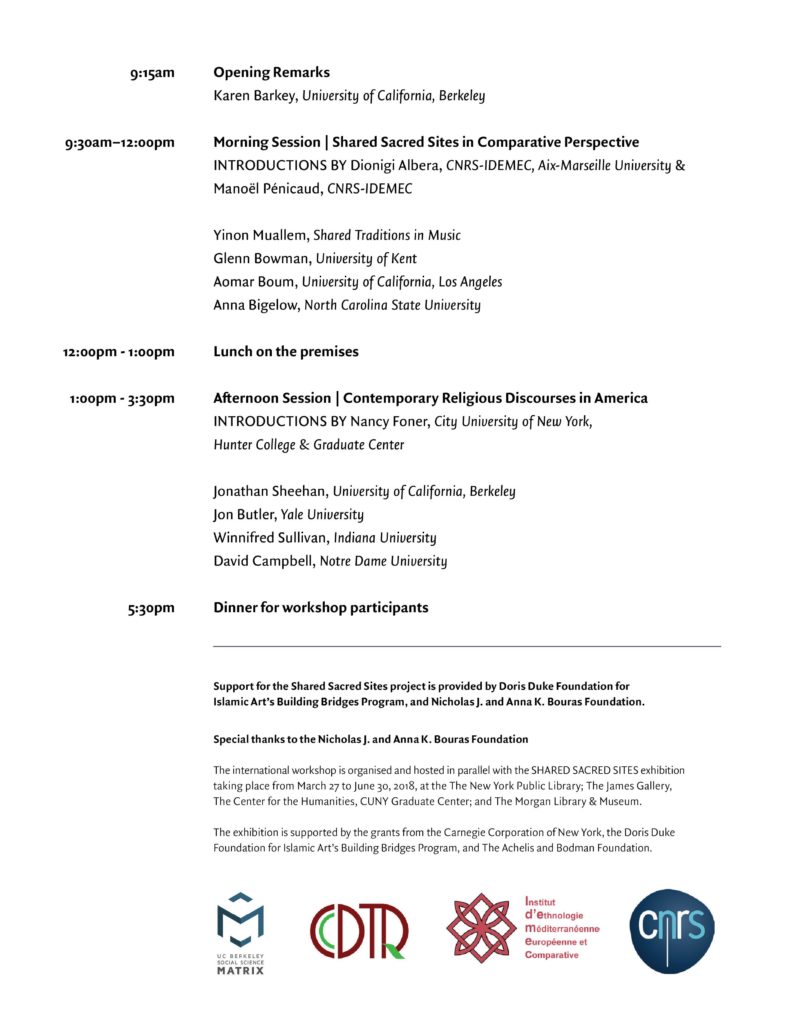
Previously Shared Sacred Sites traveled to Istanbul, Turkey (2017), Thessaloniki, Greece (2017), Tunis, Tunisia (2016), and Marseilles, France.




